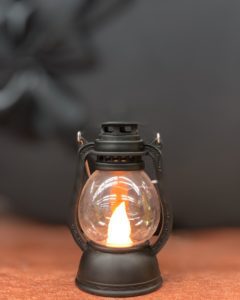38 great idioms for study and work
Your studies/work is of course very often the first topic you might meet in the IELTS speaking exam, and what better way to make a good first impression with the examiner than to use some good idiomatic language. There are also always some part 2 topics where you might be asked to describe something related to study or work, so these idioms are indeed worth having a look at.
What truly distinguishes native English speakers from language learners are idioms, which are inextricably linked to fluency. A higher band score will be earned if you use idioms or idiomatic language correctly in your IELTS speaking exam.
It’s never a good idea to try to learn a large number of idioms at once; instead, focus on one or two at a time. You’ll gain confidence in using them if you practice using them, making sentences and speaking into a mirror while doing so. Make sure you truly understand the meaning and application of each idiom, and don’t try to impress the IELTS examiner by using a random idiom in a sentence. Idioms must be used correctly or they will do more harm than good in terms of increasing your band score.
Your studies
- To figure something out
To figure something out means to find a way to solve a problem.
“I couldn’t figure out how to do my maths homework, and had to ask the teacher for help.”
- To pass with flying colours
To succeed in or accomplish something very easily, and successfully.
“It was a very difficult exam, but to my joy I passed with flying colours.”
- To ace
 To get a top grade or an A in a test/exam
To get a top grade or an A in a test/exam
“After I aced my IELTS exam I went out to celebrate with my parents.”
- To bomb
To get a really bad grade in or fail an exam /test.
“I couldn’t believe I only got 34% in the maths test. It’s the first time i ever bombed a test like that.
- A piece of cake, a walk in the park.
We can use both of these idioms to describe something that was very easy to do.
“The exam was a piece of cake, and I got a very high score.”
“The final assignment was a walk in the park, and only took me 2 hours to complete.”
- To skip/ To ditch
To purposely miss or not go to class in order to do something else.
“If the teacher finds out that i skipped/ditched class to go to the beach, I will be in a lot of trouble!”
 To hit the books
To hit the books
To hit the books means to study.
“I have an exam on Monday, so I’m going to stay at home this weekend and hit the books”
- To pull an all nighter
This means to stay up all night studying or working.
“He ended up being too tired from pulling an all nighter before his final exam.”
“Pulling an all nighter is certainly not healthy.”
- To learn by heart
To learn by heart means to memorise something.
“It’s not a good idea to learn IELTS speaking part 2 topics by heart as the examiner will lower your score for this.”
“In high school we often had to learn some old poems by heart and then recite them for the teacher.”
- To cram
To try and study and review too much right before a test.
“He always leaves it until the last moment, and then tries to cram for the test and pulls an all-nighter.”
- To burn the midnight oil
 To burn the midnight oil means to stay up studying or working very late.
To burn the midnight oil means to stay up studying or working very late.
“When I was in college I used to stay up burning the midnight oil most nights.”
“It’s unhealthy to burn the midnight oil too often as we all need enough sleep to stay healthy.”
- To burn the candle at both ends
This means to go to bed late and get up early.
“I’m very tired lately as I’ve been burning the candle at both ends preparing for my final exams. I’m going to have to catch up on sleep when it’s all over.”
- To drop out
This means to leave school or college before you have graduated or finished the course
“It’s a well known fact that Bill Gates dropped out of college, but still went on to becoming hugely successful.”
- Bookworm
A bookworm is someone who is always reading a book.
“I was a real bookworm back in high school, and was always studying something.”
- Teachers pet
The teachers pet is the teachers favourite student, who maybe gets some special treatment in class.
“She was the teachers pet, and often told the teacher when other students were being naughty in class.”
- Copycat
A copycat is someone who copies another student’s homework or work.
“The teacher would get mad if she discovered any copycats when grading the homework.”
“My little sister is a little copycat, and makes me mad when she copies everything I say.”
- To brainstorm
 To try and come up with and develop a list of ideas.
To try and come up with and develop a list of ideas.
“The teacher put us in groups to brainstorm some ideas for the end of term school party.”
- To rack one’s brains
To rack one’s brains means to think very hard and long about something.
“I racked my brains to come up with ideas for writing my final paper.”
IELTS speaking – Part 2 and 3 example answers
Idioms to describe your work/job
- Dead end job
A job that gives no chance of promotion or advancement in the future.
“My mother always told me that if i didn’t study hard in school that i would end up with a dead end job.”
- Lay off / laid off
This is where a company has to tell staff that they can no longer provide them jobs or there is no work for them anymore.
“Due to the bad economy at the moment, a lot of big companies have had to lay off a lot of staff.”
- Nine-to-five
 This usually means a stable job that allows you to work from 9am – 5pm 5 days a week.
This usually means a stable job that allows you to work from 9am – 5pm 5 days a week.
“I just want a normal nine-to-five job like working in a bank or government department.”
- To fire / to sack
To be told you no longer have a job because of something you did.
“She was late for work every morning, so the manager fired/sacked her.”
- To bring home the bacon
To earn a living for your family.
“My father always worked very hard as he felt it was his responsibility to bring home the bacon”
- A big cheese
 To describe an important person or leader.
To describe an important person or leader.
“Bill Gates is the big cheese in microsoft.”
- To be snowed under
To be very busy at work and have so many different things to do.
“I’m sorry, but i can’t meet you for dinner tonight as i’m snowed under with work.”
- Works all the hours that god sends
To work as hard and as much as possible
“She is saving up to buy a house and works all the hours that god sends.”
- Go the extra mile
To go the extra mile means to do more in work than is expected of you.
“He is a great worker and always goes the extra mile to get the job finished.”
- To get on the wrong side of someone
To do something that makes someone dislike you.
“Make sure you are on time every morning! You do not want to get on the wrong side of the boss.”
- To get off on the wrong foot.
To get off on the wrong foot means to start off badly or make a bad first impression.
“He really got off on the wrong foot by being late for work on his first day!”
“He forgot to turn off his mobile phone before meeting the IELTS examiner and really got off on the wrong foot!”
- To take someone under your wing.
To take someone under your wing means to look after someone.
“When she first joined the company, her new boss took her under her wing and helped her to settle into the new job.”
- To show someone the ropes
To show someone how things are done.
“When I first started the job, one of my colleagues was good enough to show me the ropes and help me learn how to do the job.”
- To think outside of the box.
 To think outside of the box means to think in a very creative way that is different to normal.
To think outside of the box means to think in a very creative way that is different to normal.
“To come up with a new and different kind of advertisement, we really need to think outside of the box.”
- It’s not rocket science
This means something that is not complicated or difficult to understand.
“My job is pretty easy, and is certainly not rocket science.”
“Learning to make a pizza is not rocket science.”
- Back to the drawing board
Having to start all over again after a plan or idea does not work.
“The boss was not happy with the final advertisement, so we had to go back to the drawing board and start again.”
- Throw in the towel
 To give up or accept failure.
To give up or accept failure.
“Even though he received a lot of negative feedback, he refused to throw in the towel.”
more idioms
Great idioms for places and travel
IELTS speaking exam Idioms to describe people.
IELTS speaking exam Idioms for mood and feelings.
17 great idioms for discussing problems
How to get a band 7 in IELTS speaking



































